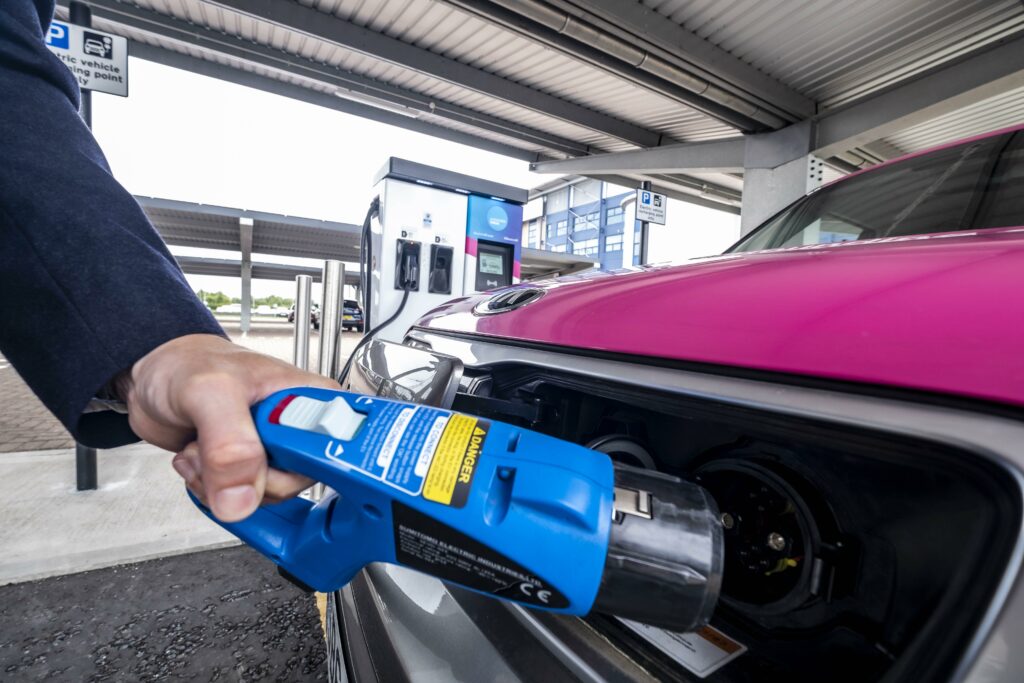A new report from Transport Scotland and Scottish Futures Trust has highlighted the need for changes to the current ChargePlace Scotland network.
Set up in 2013, the Scottish government has invested over £45 million in ChargePlace Scotland network of electric vehicle (EV) chargers, delivering over 1,800 chargepoints.
However, the new report – which sets out how Scotland can enable further EV uptake – states that if this continued, it would be at an even greater cost to the public purse, with a need for significant investment in public EV infrastructure. Additionally, the continued offer of tariff free access will discourage other potential sources of investment and could constrain growth of the network and lead to higher levels of public expenditure than necessary.
As such, where it is possible to do so, both private and public capital will need to be jointly deployed to support the rollout. Consideration will also need to be given to a variety of potential delivery models and how these could be developed as opposed to relying on one funding model to support the provision of public charging.
These models could include concession type arrangements between a public authority and a private operator where the latter operates, maintains and expands the authority’s EV charging infrastructure and accepts revenue risk on chargepoint utilisation for a defined period of time.
Other models could include a landlord/tenant type relationship between the public authority and a private operator, longer term joint venture arrangements or revenue-based support models.
Where tariffs are introduced, they should cover more than just the cost of the electricity supplied, the report said. This is due to the existing ChargePlace Scotland infrastructure having been built up over a period of years, meaning it will require investment against a backdrop of rapid technological change.
Minister for transport Graeme Dey said: “This report is clear that we are now at a tipping point in terms of current demand and future requirements. By retaining the best characteristics that Scotland enjoys through ChargePlace Scotland, the opportunities from inviting greater private sector involvement could be tremendous.”
Supporting mass market growth in EVs in Scotland will require a major expansion in public charging, the report said, which needs to be undertaken in a fair, equitable and just way.
It identified a number of areas for consideration to address factors such as the scale and pace of investment required, the increasing need to address the different challenges of the various EV charging markets and the opportunity to bring together a broader cross-section of the public sector – government, local authorities and regulators – as well as the private sector.
These include among others:
- Optimising the ability to leverage private investment, skills and resources to improve the planning, delivery operation and maintenance of EV charging infrastructure
- Encouraging the deployment of private capital through partnerships with the public sector
- Continuing engagement with Ofgem and industry to influence the regulatory environment to enable efficient investment in electricity networks
- The need for chargepoint hosts to review current pricing policies and EV charging tariffs to reduce public subsidy and increase commercial viability of new charging investment, whilst maintaining inclusive access
The report also highlighted how the area of greatest cost, and therefore of greatest impact on business cases in particular for rapid and ultra-rapid chargepoints, is distribution network operator (DNO) costs.
It referenced Project PACE, a collaboration between the Scottish government and SP Energy Networks (SPEN) which showed that early involvement of DNOs in chargepoint planning can bring significant cost and timing benefits.
The project saw 180 EV chargers installed around North and South Lanarkshire at more than 40 charging hubs, increasing the number of public chargers in the areas by over 200%. If rolled out across the UK, SPEN said taxpayer savings could reach £310 million, creating a world leading EV charging network and ensuring there is the electricity infrastructure needed to support it.
DNOs will be a key part of rolling out EV charging infrastructure, the report said, adding that the ability of the wider regulatory environment to enable DNOs to make anticipatory investment remains a key issue for Ofgem to consider.






